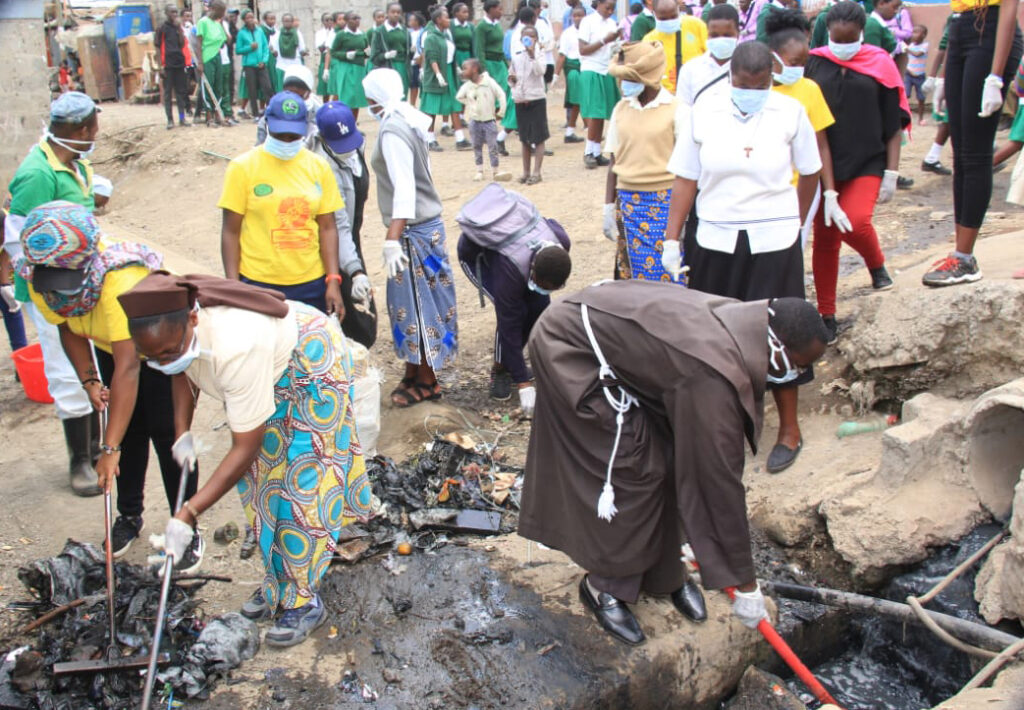This year, World Environment Day focuses on the theme of plastic pollution and the need for accelerated action to combat it. As part of this effort, UN negotiations towards a legally binding instrument on plastic pollution have begun. Importantly, the resolution establishing negotiations called for provisions in the instrument which encourages “action by all stakeholders, including the private sector.”
In a statement released ahead of World Environment Day, the UN Special Rapporteurs on toxic wastes and on the environment highlight the scale of the problem: every year, the world is generating 400 million tons of plastic, the production of which almost exclusively relies on fossil fuels. They warn that “Plastic, microplastic and the hazardous substances they contain can be found in the food we eat, the water we drink and the air we breathe. While everyone is affected by the negative human rights impacts of plastic, the level of exposure to plastic-related pollution and waste affects marginalised communities the most.”
Franciscans International underscores the role of the private sector in plastic pollution, and indeed in the whole triple planetary crisis of climate change, biodiversity loss, and pollution that the world currently faces. We must confront the reality that while the operations and activities of corporations are a driver of this crisis, there has been little accountability. Instead, our partners on the ground continue to call attention to the adverse impacts that their communities face as a result of business activities, ranging from extractive industries to waste disposal.
“In today’s globalized world, both business activities and the pollution they cause know no borders. The negative human rights implications of this situation can only be addressed through a collective effort by the international community,” says Markus Heinze OFM, Executive Director of Franciscans International. “We cannot tolerate a situation where communities, particularly in the Global South, are first exploited for their resources, bear the brunt of climate change, and often turned into ‘sacrifice zones’ for waste and pollutants. Strong, legally binding UN mechanisms in this context are instrumental for a just and livable world.”
In this vein, Franciscans International continues to advocate for a UN legally binding instrument to regulate transnational corporations under international human rights law. While the UN General Assembly and Human Rights Council resolutions recognizing the right to a clean, healthy and sustainable environment recall the UN Guiding Principles on Business and Human Rights, it is clear that States must move beyond non-binding principles and commitments. Rather, States must fulfill their human rights obligations, prevent violations and environmental degradation by business entities, including extraterritorially by businesses “domiciled in their territory and/or jurisdiction,”1 and ensure appropriate redress.
Moreover, as noted by the UN Committee on Economic, Social, and Cultural Rights, States violate their obligations when they “prioritize the interests of business entities over Covenant rights without adequate justification […].” Franciscans International calls attention to the presence of business entities (and interests) at the UN, including in forums related to the environment, as part of so-called “multi-stakeholderism.”2 Businesses can only be “part of the solution,” as underscored by UN officials, when there is appropriate regulation and when they are held accountable for human rights abuses and environmental degradation caused by their activities.
On this World Environment Day, Franciscans International underscores the gravity of the triple planetary crisis and the urgency for ensuring that business bottom lines do not continue to be prioritized over people and planet.
—
- CESCR, General Comment no. 24, Para.26
- See for example: COP27: Sharp rise in fossil fuel industry delegates at climate summit, BBC, 10 November 2022; Corporate Capture of the United Nations, ESCR-Net, 11 February 2021.

